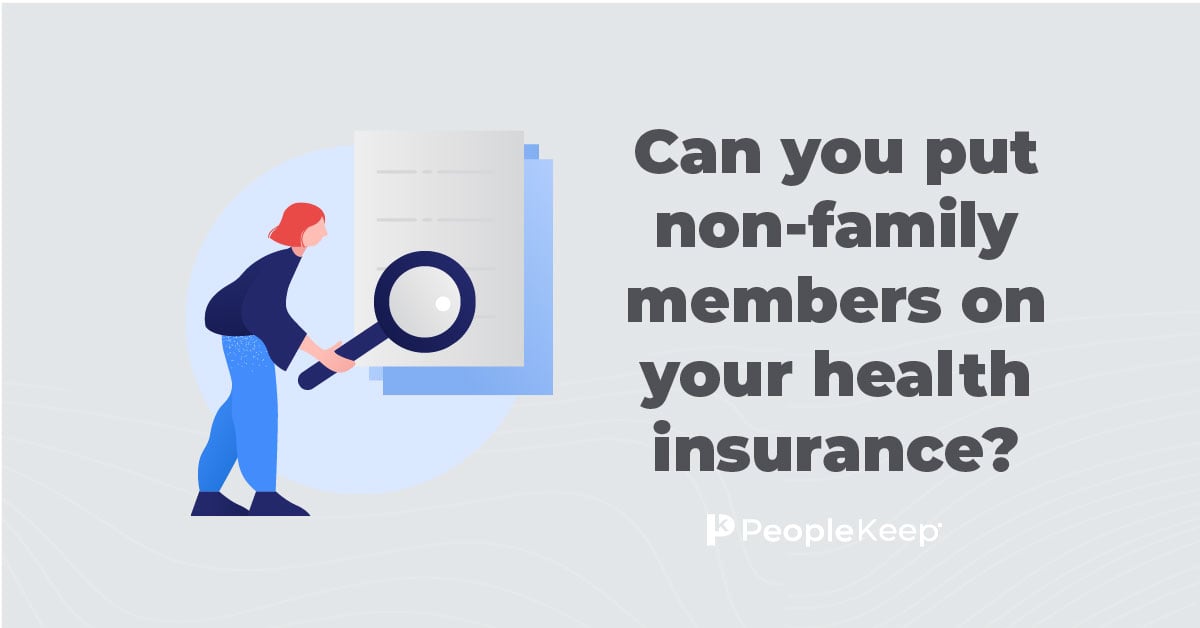How to Help Employees Switch to Individual Health Insurance
By Abby Rosenberger on November 3, 2014 at 12:00 PM
Lately, there has been a ton of media buzz surrounding the growing trend of small employers (with fewer than 50 employees) who are directing their employees to the individual health insurance market to obtain coverage. Since these employers are not subject to the employer mandate, they will not face any penalties for not providing group health insurance to their employees.
With open enrollment for individual health insurance quickly approaching, now is the perfect time to help your employees enroll in individual health insurance policies. Since many employees have never purchased their own health insurance coverage before, this may seem a bit overwhelming for them. Here is an overview on how to help your employees with the switch to individual health insurance.
The Trend Is Growing
The media has been reporting on the growing trend of small businesses and startups switching their employees to individual health insurance. Part of the motivation driving the trend is the skyrocketing group health insurance premiums for small businesses.
The other reason behind small businesses dropping group health coverage is the many advantages that individual health insurance has due to the Affordable Care Act. Many of the articles written about this trend cite that employees who are eligible for premium tax credits end up paying similar contributions toward their premiums as they did with their group health insurance plans.
Some of the employers featured in the media are offerering a salary bump to employees who made too much money to qualify for premium tax credits to make up for the lost healthcare benefits. While this may seem like a beneficial arrangement for both parties, there are several problems with this solution.
-
There is no guarantee that the employees will actually spend the money on health insurance with a stipend.
-
Employers may lose top-tiered candidates to employers with formal health benefits in place. While a stipend may be somewhat appealing to candidates, most would prefer a formal, tax-advantaged health benefits program.
Educate Employees On the Advantages of Individual Health Insurance
When switching employees to the Marketplace to purchase health insurance, it is vital to educate them about the advantages of individual health insurance. While individual health insurance plans are not new, the Affordable Care Act (ACA) creates new advantages that make individual health insurance just as good – if not better – than traditional group health insurance. The new advantages are:
-
Coverage for a pre-existing condition (employees cannot be denied coverage or charged more because of a medical condition).
-
Coverage of essential health benefits (a core set of health benefits and services).
-
Employees may keep their policy when switching jobs.
-
Employees can choose the policy that best fits their family’s needs, including the network of providers and level of coverage.
-
Individual health insurance costs less, and employees may be eligible for a premium tax credit to assist them with the cost of monthly health insurance premiums.
Let Employees Know Where and When to Purchase Individual Health Insurance
If you are canceling your group health insurance policy, all those covered will be eligible for a special enrollment period for individual health insurance. This means they are eligible to purchase personal health insurance outside of the annual Open Enrollment Period. Buying health insurance is now easier than ever. You should inform employees that individual health insurance policies can be purchased from:
-
The ACA Health Insurance Exchange (“Marketplace”)
-
A licensed health insurance agent or broker
-
Directly from an insurance company
Tip: To access the health insurance discounts (premium tax credits), employees need to purchase a plan offered on the Health Insurance Marketplace.
Clearly Announce Dates and Deadlines
If canceling a group health insurance policy, you should notify the employees that they are eligible for a special enrollment period. The special enrollment period generally lasts 60 days after the qualifying event.
If your employees do not qualify for a special enrollment period, you should notify employees that the annual open enrollment period for coverage in 2015 begins November 15, 2014 and extends through February 15, 2015.
Provide Additional Assistance and Allow Time for Questions
You should designate a healthcare benefits expert to be available for questions and additional assistance. The expert can have answers planned out for the most commonly asked questions about the transition to individual health insurance. Keeping additional resources ready to distribute to employees is also a good idea for anticipating employee needs.
Check out more resources
See these related articles

Can you put non-family members on your health insurance?
Looking to provide health insurance for a non-family member? Discover the possibilities and limitations of adding non-relatives to your health insurance policy.

Understanding health insurance - A basic overview
Get a basic overview of health insurance. Learn how it works, key terms, and how to choose the right plan with this guide to health insurance explained.

Guide to premium tax credits for health insurance
See how premium tax credits can lower health insurance costs. Our guide provides the information you need to navigate this important aspect of healthcare.


